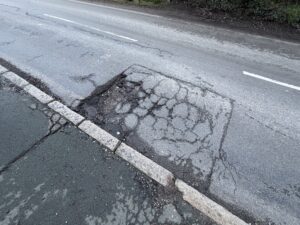Carbon reduction should be an integral part of the procurement process in the highways sector, encouraging more companies to significantly reduce carbon as part of any future projects, according to Paul Aldridge, Sustainability Director at WJ Group.
Speaking after the accomplishment of WJ’s Product Carbon Footprint Model, Mr Aldridge said: “At the moment there is not enough incentive for companies to make the necessary changes to reduce carbon quickly enough. Maybe it will come down to regulation in the end, but we can’t wait, we have to act now. The sector has spent a long time talking about this, but not doing a lot, now is the time to change that.”
“Some things can make a big difference. If we knew the footprint of all companies and all the materials and understand them, we could start to change things. WJ can now make more than 80% reduction in embedded carbon in materials at no cost to our clientele, and if anything, with a slight performance gain. Why do we not specifiy this? If specification is too slow and cumbersome then least it should be an essential part of the procurement process,” he added.
WJ’s new Product Carbon Footprint Model provides quick, efficient and reliable at-scale carbon footprinting for all current and future thermoplastic products, independently vertified to PAS 2050-2011 and ISO14067 (2018).
“Specification and procurement changes are essential if we as a country are going to meet our sustainable development goals. It is possible to procure not just on price and there are many excellent examples where quality has a higher score. It is imperative to recognise the importance of Carbon intensity of products and their delivery. This many believe should be a serious part of the specification and then procurement of goods and services,” says Mr Aldridge.
























